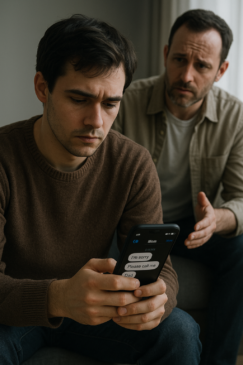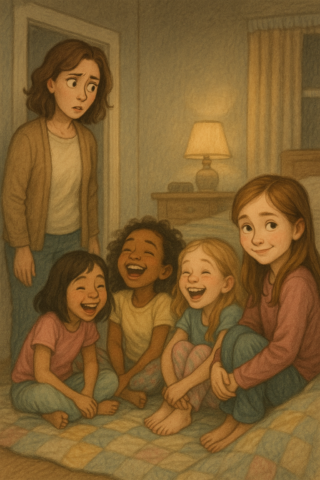There are few things more personal than the moment you receive difficult news about your health. For me, it was a gray morning in late autumn when my doctor called, her tone soft and careful, to confirm what I’d feared for weeks. I hung up the phone, heart pounding, and sat in silence—trying to absorb a new reality I wasn’t ready to share.
I knew eventually I would tell my family. But first, I needed time: time to process what it meant, to feel scared and hopeful in private, to gather the right words for each person. I told just one person—my sister Megan—because she was always my confidante, my anchor in every storm.
But before I could catch my breath, the news wasn’t just mine anymore.
The Secret That Wasn’t
It started with a single phone call. My aunt texted, “Call me when you can, we’re all thinking of you.” Then my cousin sent flowers, my mother-in-law left a voicemail, and my brother’s wife emailed, offering help with anything I needed. I hadn’t spoken to any of them. My stomach twisted as I realized what happened.

I called Megan in disbelief. “Did you tell Mom? Or anyone else?”
She was quiet for a moment. “I’m so sorry. I just thought—people love you and would want to know. Mom kept pressing me and… I couldn’t keep it in. I thought you needed support.”
But I hadn’t been ready. Suddenly, I was fielding questions I couldn’t answer, comforting relatives who were more afraid than I was, and feeling like my private struggle had become a family event. The one thing I’d needed most—control over my own story—was gone.
The Pain of Losing Agency
Being vulnerable is hard enough; being forced to share your most private moments before you’re ready is something else entirely. The people who reached out meant well, but I felt exposed, overwhelmed, and—more than anything—robbed of my voice.
Megan apologized again and again, but the hurt lingered. “I only wanted to help,” she said, her eyes brimming with tears. “I didn’t realize how much it mattered to you to wait.”
I tried to forgive her, but I also made sure she knew how important it was for me to move at my own pace. “It’s not just news, Megan—it’s my life. I needed to tell it on my own terms.”
Finding My Way Back to Myself
It took time, but eventually, I found space to process my diagnosis in the way I needed. I had honest conversations with my family, explaining how overwhelmed I’d felt. Most understood, some didn’t. But it helped to finally speak my truth—not just about my health, but about what support really looks like.
Over time, I learned to accept the love that poured in, even if it arrived before I was ready. I realized that boundaries are essential, and that sometimes, people cross them out of fear or love—not malice.
What I Learned
The power to share your own story is a right, not a privilege. I learned that it’s okay to ask for space and to explain why you need it. I also learned that, while forgiveness is hard, it’s possible when intentions are rooted in love—even if the results hurt.
Megan and I rebuilt our trust, one conversation at a time. Our family grew closer, too—now more aware of the importance of respecting privacy, even in a crisis.
Final Thought
If someone shares your story before you’re ready, don’t be afraid to reclaim your voice. Set your boundaries, ask for understanding, and trust that real support means letting you lead the way—even in the hardest moments.


